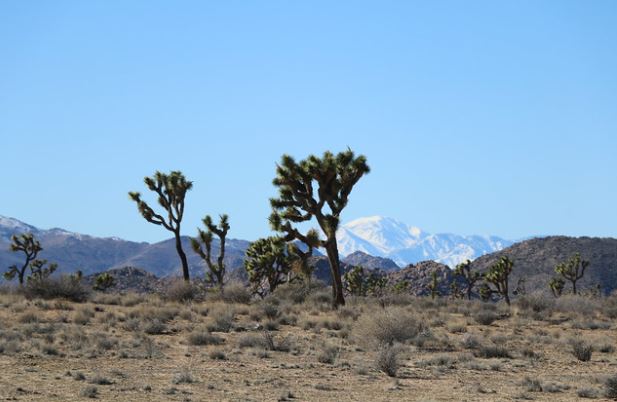Trees Remain Temporarily Protected At Least Until October Meeting
June 17, 2022 - LOS ANGELES— The California Fish and Game Commission deadlocked on Thursday on whether to give western Joshua trees permanent protection under the state’s Endangered Species Act, delaying a final decision until at least October.
The 2-2 vote means the species stays protected at least until the commission votes to either extend or end current state protections. Commissioners agreed to consider the listing decision at their October meeting and seek more input from Tribes in the meantime.
“The science is clear. This should’ve been a unanimous vote,” said Brendan Cummings, the Center for Biological Diversity’s conservation director and a Joshua Tree resident. “We’re running out of time to save these beautiful trees and their fragile desert ecosystem. This decision is a litmus test for how seriously California is taking climate change.”
Commissioners Samantha Murray and Erika Zavaleta, the president and vice president of the commission, voted in favor of listing the species as threatened, while commissioners Eric Sklar and Jacque Hostler-Carmesin voted again protection.
The law requires listing decisions under the California Endangered Species Act to be based solely on the best available science. Economic considerations are not to be considered in determining whether to protect a species. The two commissioners who voted against listing focused on the economic implications, and first sought a delay in the vote before ultimately voting against protection.
“This vote was disappointing, but unfortunately not at all surprising,” said Cummings. “Even when there’s no question about the scientific evidence, California officials all too often find excuses to delay taking necessary action in the face of climate change.”
Among the supporters of listing were U.S. Sen. Diane Feinstein and state Assemblymember James Ramos, the chair of the California Native American Legislative Caucus. So far all Tribal input has supported protecting western Joshua trees.
In 2019 the Center filed a petition to list the trees under the state’s Endangered Species Act. In 2020 the state’s Department of Fish and Wildlife recommended that Joshua trees be temporarily protected during a yearlong study, and the commission agreed. In April 2022 the department recommended against permanent protection of the species, shrugging off concerns from independent scientific peer reviewers.
Without legal protection and the conservation measures it entails, climate change could wipe out western Joshua trees, which already are failing to reproduce at drier, lower elevations.
Approximately 40% of the western Joshua tree’s range in California is on private land and only a tiny fraction of that habitat is protected from development. Projections show that virtually all those trees will be lost without legal protection.
“Developers and local officials seem indifferent to killing off one of the main reasons people come to the Mojave Desert, but the state can put a stop to this reckless bulldozing,” Cummings said. “If commissioners ultimately fail to protect these fragile trees, they’ll also be abandoning the communities and livelihoods that rely on them.”
Background
Recent studies show Joshua trees are already dying off because of hotter, drier conditions, with very few younger trees becoming established. Even greater changes are projected over the coming decades.
Scientists in 2019 projected that Joshua trees will be largely gone from their namesake national park by the end of the century. An earlier study projected the species will be lost from virtually its entire range in California.
Prolonged droughts are expected to be more frequent and intense over the coming decades, shrinking the species’ range and leading to more tree deaths. Higher elevations, where some Joshua trees might survive increasing temperatures and drying conditions, are at risk of fire because of invasive non-native grasses.
Western Joshua trees are also threatened by habitat loss and degradation. Outside of Joshua Tree National Park, off-road vehicle use, cattle grazing, powerlines and pipelines and large-scale energy projects are destroying habitat.
Joshua trees come in two distinct species: the western Joshua tree (Yucca brevifolia) and the eastern Joshua tree (Y. jaegeriana). The two species occupy different areas of the desert, are genetically and morphologically distinguishable, and have different pollinating moths.
Yucca brevifolia in San Bernardino County, California
Photo by JGilkeson/USFWS, 2017
The Center for Biological Diversity is a national, nonprofit conservation organization with more than 1.7 million members and online activists dedicated to the protection of endangered species and wild places.
Source: Center for Biological Diversity









